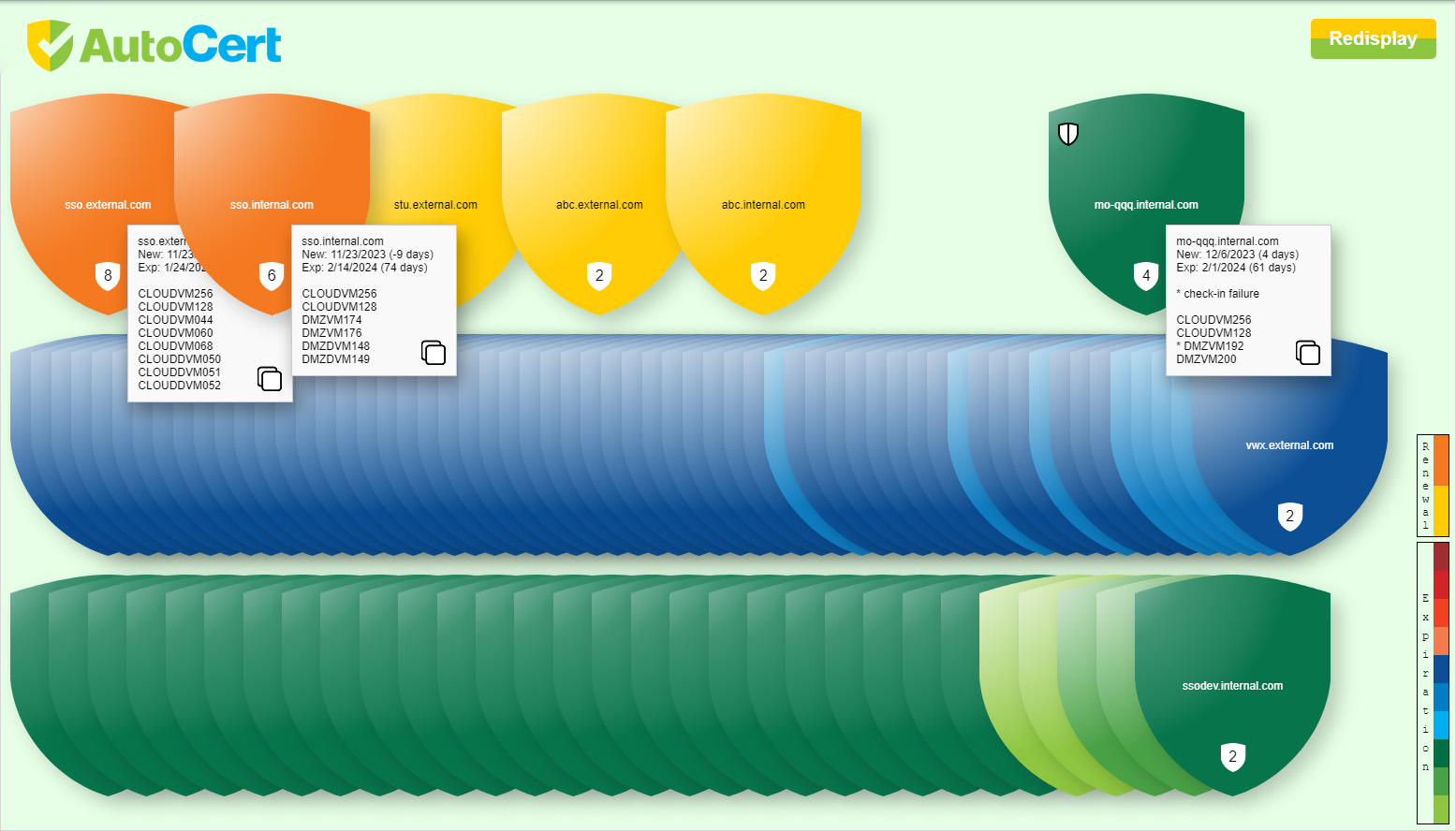.webp)





FACT
$15 million
is the average annual cost of recovering from certificate expirations.
Source: CSO “Expired certificates cost businesses $15 million per outage” September 30, 2015.


FACT
77%
of companies have experienced outages in the past 24 months due to expired certificates.
Source: Keyfactor Blog “Introducing Keyfactor’s 2023 State of Machine Identity Reportthreat” March 21, 2023.


FACT
Wildcard
certificates aka star (*) certificates are no longer considered secure on the open Internet.



FACT
45%
is the increase in cyber attacks predicted by Gartner by the end of 2025.
Source: Click SSL ”18 Top SSL Statistics Which Shows Why Website Security Matters” August 10, 2023.


FACT
Quantum
computing will allow hackers to break encryption much faster. Answer: replace certificates often.
Source: Security Magazine “It’s time to prepare for quantum computing’s impact on DNS security” February 14, 2023.


FACT
31%
is the increase in cybersecurity attacks per company in one year.
Source: ClickSSL ”18 Top SSL Statistics Which Shows Why Website Security Matters” August 10, 2023.


FACT
23,000
is the number of private keys companies manage (on average). Most IT leaders don't know where.
Source: Click SSL ”18 Top SSL Statistics Which Shows Why Website Security Matters” August 10, 2023.


FACT
69%
of employees have bypassed their organization’s cybersecurity guidance in the last year.
Source: Gartner ”Gartner Predicts Nearly Half of Cybersecurity Leaders Will Change Jobs by 2025”February 22, 2022.



